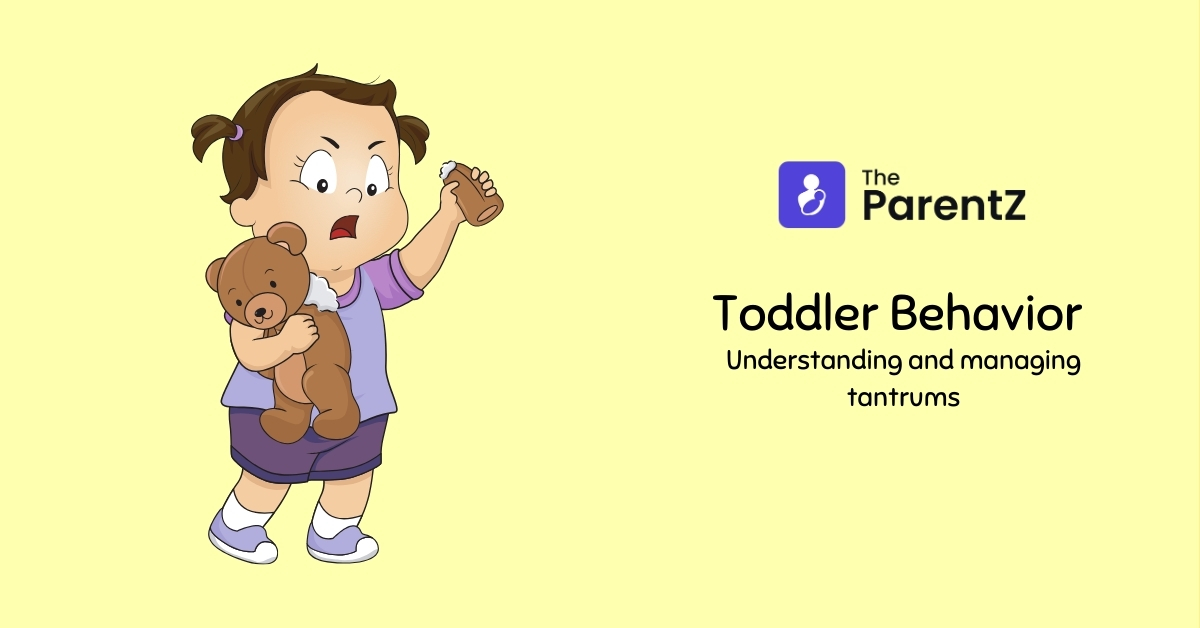Toddler Tantrums: Taming Tiny Volcanoes
The time when a little child starts to shout and cry can make even the most calm parent very irritated. The screams, the moving limbs, and their hard-to-understand anger make you doubt everything about your now not-so-cute child. But before you drown in the wave of frustration, take a deep breath and remember that tantrums are normal. They are a normal part of your young child’s growth. It might be messy, but they need to express their feelings and go through an often scary world
Understanding the Why
A tantrum’s core always has frustration. Your toddler, navigating a world with limited vocabulary and emotional control, can get overwhelmed by seemingly simple things: A toy that fell, a cookie not given and plans changed. It’s crucial to keep in mind that these meltdowns are not hitting someone personally; they simply show your child trying to say, “Hey, something isn’t right here and I don’t know any other way of letting you know about it!”
Identifying Triggers
Common triggers for toddler tantrums include:
Fatigue: An exhausted toddler is a grumpy toddler. Make sure your kid sleeps enough, and don’t let them be without naps for too long.
Hunger: Even a calm kid can turn into a meltdown due to low blood sugar. Keep healthy snacks readily available.
Overstimulation: Too much noise, lights, or activity can be very big. It’s a bad thing to feel confused and stressed out by it. Create quiet moments and chances for peaceful games.
Frustration: When young kids around the age of three have trouble learning a new ability or cannot express their feelings, they can get upset. Give help and keep the faith, but don’t do too much fixing or take over completely.
Attention-seeking: Sometimes, tantrums are requests for attention. Okay, maybe not the best kind of focus, but still, it’s about getting noticed. If we ignore them all, it might not be good. But replying slowly and firmly without giving in to demands is important.
Calming the cute one
When a tantrum happens, it’s normal for people to feel like they need to respond. But remember, you should try to aid your child in getting through the bad times instead of making them worse. Here are some effective strategies:
Stay calm: Your being peaceful is a guide in the messy emotions. Breathe deep, talk lightly and comforting way. Don’t shout or fight.
Validate their feelings: Acknowledge their unhappiness with words like, “I know you’re sad because you wanted the cookie”. This makes them feel listened to and understood.
Offer choices: When feeling like you are controlled, give two good choices. “Do you want the blue shirt or the green one?” helps them make a little choice and have control again.
Distract if possible: Sometimes when a tantrum is starting, it helps to quickly change the focus. This can be very effective in preventing or stopping bad behaviour. Get a new toy, sing a song, or take some fresh air outside.
Provide a safe space: If nothing else works, give your kid a safe place to relax and cool down. Maybe try the corner of their room with some soft pillows there. Make them aware that you’re close and will visit when they feel comfortable doing so.
Beyond the Meltdown
Even when dealing with tantrums is important, the real task takes place away from heated moments.
Here are some ways to prevent future meltdowns:
Establish routines and boundaries: Predictability provides security. Make dinner and sleep times the same each day, and follow the strict rules you’ve set up. Then stay true to those expectations every time without fail.
Promote emotional vocabulary: Ask your kid to tell you what they are feeling. Teach them words like “unhappy,” “sad” and “angry” so they can show how they feel better.
Offer empathy and support: Prove their feelings are right and show them you care. Tell them they’re not the only ones feeling frustrated.
Model healthy coping mechanisms: Help them understand how you handle your annoyances. Breathe deeply, speak your feelings, and use good ways like exercise or calm thinking to let out negative emotions.






Be the first one to comment on this story.